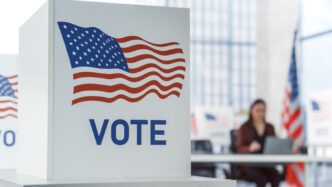Executive Summary
The Story So Far
Why This Matters
Who Thinks What?
The House of Representatives is set to reconvene on Wednesday, November 13, 2025, to vote on a Senate bill aimed at ending a 43-day government shutdown, the longest in history. Speaker Mike Johnson, who had kept the chamber closed until now, faces immediate legislative challenges, including decisions on expiring Affordable Care Act subsidies and the release of previously withheld Jeffrey Epstein files. The move comes as President Trump’s influence remains critical for the Speaker’s ability to unify his narrow Republican majority.
End of a Record Shutdown
The House’s return marks the end of an impasse that began after its last vote on September 19. During this period, the government shutdown left over one million federal workers without pay and millions of Americans without vital nutrition benefits.
Speaker Johnson had justified the closure by arguing that there was nothing to negotiate until Democrats conceded to Republican demands. The Senate, however, remained in session, repeatedly voting on efforts to reopen the government and advancing appropriations bills covering military construction, agriculture, and veterans affairs.
The House is expected to vote on a Senate bill that would resolve the record-breaking impasse. President Trump indicated his support for the bill on Monday, a factor that may help Speaker Johnson maintain unity within his Republican conference.
Legislative Hurdles Ahead
Upon reconvening, Speaker Johnson faces a complex legislative agenda, with a looming government funding showdown already anticipated in late January. One immediate challenge concerns the expiring enhanced subsidies for Affordable Care Act (ACA) policyholders, whose premiums are increasing.
Vulnerable Republican members are urging Johnson to hold a vote on extending these subsidies, mirroring a Senate vote. However, taking such action risks alienating conservative members who oppose the ACA, potentially jeopardizing his speakership. Refusing to act could trigger a rebellion among his own benches or a discharge petition to force a vote.
The House’s return also revives the controversy surrounding convicted sex offender Jeffrey Epstein. Speaker Johnson will be compelled to swear in Democratic Representative Adelita Grijalva of Arizona, who won a special election in September. Her delayed swearing-in was controversial as she pledged to provide the final signature needed for a petition to force a vote on releasing the Epstein files.
While there are no allegations of wrongdoing by President Trump in relation to Epstein, their past association has drawn scrutiny and raised questions about the administration’s stance on releasing the case files.
Partisan Divisions and Economic Concerns
The return to Washington has already highlighted partisan tensions. During a House Rules Committee meeting on Tuesday, Republican Chair Virginia Foxx criticized Democrats for their approach to the shutdown. In response, the committee’s top Democrat, Jim McGovern, sarcastically welcomed Republicans back, criticizing their absence during the shutdown.
The debate over the ACA subsidies continues to expose divisions. Representative Mike Lawler, a vulnerable Republican from New York, has called for a one-year extension of the enhanced ACA subsidies alongside reforms to the 15-year-old law. Speaker Johnson, however, expressed reservations, suggesting that subsidizing insurance companies could lead to higher rates.
Republican House members have returned amidst reports of President Trump’s approval ratings dipping, as many Americans grapple with rising costs for food, housing, and healthcare. Recent Democratic wins in governor’s races in Virginia and New Jersey have underscored the Republican party’s vulnerability on these economic issues.
Outlook for House Leadership
Speaker Johnson, a former back-bencher, has demonstrated an ability to manage his conference under difficult circumstances. However, his critics often perceive him as dependent on President Trump, a factor that will remain critical as he navigates the complex legislative landscape ahead.
The House faces a demanding schedule leading up to the holiday season, with another government funding deadline looming in January. The ability of Speaker Johnson to manage his narrow majority and address pressing issues like healthcare costs and government funding will largely define the coming months.








